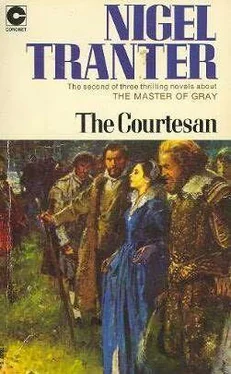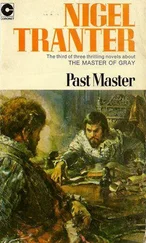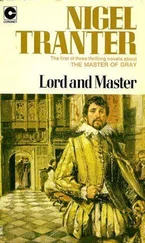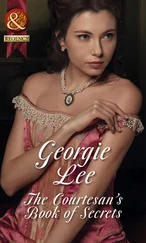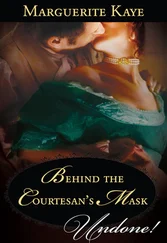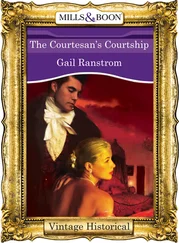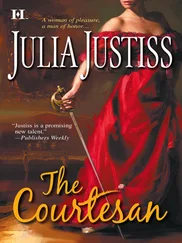Nigel Tranter - The Courtesan
Здесь есть возможность читать онлайн «Nigel Tranter - The Courtesan» весь текст электронной книги совершенно бесплатно (целиком полную версию без сокращений). В некоторых случаях можно слушать аудио, скачать через торрент в формате fb2 и присутствует краткое содержание. Жанр: Исторические приключения, на английском языке. Описание произведения, (предисловие) а так же отзывы посетителей доступны на портале библиотеки ЛибКат.
- Название:The Courtesan
- Автор:
- Жанр:
- Год:неизвестен
- ISBN:нет данных
- Рейтинг книги:4 / 5. Голосов: 1
-
Избранное:Добавить в избранное
- Отзывы:
-
Ваша оценка:
- 80
- 1
- 2
- 3
- 4
- 5
The Courtesan: краткое содержание, описание и аннотация
Предлагаем к чтению аннотацию, описание, краткое содержание или предисловие (зависит от того, что написал сам автор книги «The Courtesan»). Если вы не нашли необходимую информацию о книге — напишите в комментариях, мы постараемся отыскать её.
The Courtesan — читать онлайн бесплатно полную книгу (весь текст) целиком
Ниже представлен текст книги, разбитый по страницам. Система сохранения места последней прочитанной страницы, позволяет с удобством читать онлайн бесплатно книгу «The Courtesan», без необходимости каждый раз заново искать на чём Вы остановились. Поставьте закладку, и сможете в любой момент перейти на страницу, на которой закончили чтение.
Интервал:
Закладка:
'Aye. So be it'
She turned to David, and found him eyeing her strangely, intendy, almost sorrowfully, with little of gladness or elation in evidence over this happy change in her immediate fortunes. At his look she bit her lip, and mute appeal shot with some sort of pain clouded her clear grey eyes. She said nothing – nor did he.
It was Mary who spoke. 'May I see the picture, Granlord? she asked, and slipped over to take the miniature portrait from her grandfather. She looked at it closely, and then from it to the Lady Marie.
'No!' she declared briefly, softly, but with a strange finality.
'I am sorry,' Marie Stewart said – and sounded as though she meant it.
Chapter Four
THE new heir to Gray was born in the icy mid-January of 1589 – not at Castle Huntly but in the somewhat raffish and ramshackle establishment of the Lord Robert Stewart, Earl and Bishop of Orkney, in the old eastern wing of the Palace of Holyroodhouse which King James allowed his carefree but never debt-free, permanently impecunious, illegitimate uncle. No festivities were held, no bonfires lit on the hill-tops flanking the wide Gray lands in the Carse of Gowrie, as was normal on such auspicious occasions. The Lord Gray had reverted to his former attitude towards his daughter-in-law, and would have none of her.
Undoubtedly my lord was disappointed. The worthy, hopeful and ingenious scheme for the Navarre match had come to nothing. Admittedly it was still being mooted in certain quarters and Queen Elizabeth had declared herself in favour. But James himself had become quite definitely opposed. Which was very strange, for at first it had been quite otherwise. When the Mistress of Gray had arrived at Holyroodhouse in October, it had not taken long for the entire Court to buzz with the exciting news that King Jamie was veering away from the proposed Danish match and was much intrigued with this new notion of marrying the sister of the man who was heir presumptive to France and might very well shortly be king thereof. James indeed began drawing elaborate heraldic doodlings and designs incorporating the Lilies of France into the Royal Arms of Scotland, and calculating the shining possibilities of himself, or at worst his heir, succeeding eventually to the throne of France as well as that of England – since Henry of
Navarre, although married for seventeen years, had no legitimate children. James was even said to have made up a lengthy and romantic poem to dispatch to the lady.
Then, all of a sudden and without warning, all was changed. James lost interest. Word spread through the Court that the King had discovered that Princess Catherine was in fact old, ugly, crooked and of doubtful morals. Whence and how this intelligence had reached him was not known, although it was noted that the Duke of Lennox, who, being half-French himself, had at first been strongly in favour of the match, quite abruptly became as strongly against it, James following suit. Indeed so offended was the King that he went further, and promptly reverted to negotiations with Denmark once more -where, as it happened, King Frederick, having given up Scotland, had pledged his elder daughter the Princess Royal to the Duke of Brunswick in the interim; however, he still had his younger daughter, the fourteen-year-old Princess Anne available. She was prettier than her sister, too, he pointed out – though naturally the dowry would be smaller in consequence.
So Lord Gray's hopes of credit and profit through being intimately connected with a resounding Franco-Scottish union faded almost entirely.
The Master of Gray perforce remained an exile. But it was a very near thing. Letters of recall from the King and the Chancellor were in fact bringing him home to Scotland, when suddenly they were countermanded without explanation. Had bad weather not kept his ship storm-bound at Dieppe, he might indeed have beaten the ban. As it was, he did not allow receipt of the royal edict, which reached him actually on shipboard, wholly to demolish his plans, for by February information reached Scotland that the Master was in London, and apparently cutting high capers at the Court of Saint James.
The ageing Lord Burleigh, Lord High Treasurer of England, wrote a letter to Sir John Maitland, Lord High Chancellor of Scotland, to the effect that that realm would much benefit by the speedy return of the talented Master of Gray, and suggesting that the said excellent Chancellor should advise his royal prince to that effect.
The royal prince maintained, as so frequently was his habit, a masterly inactivity.
There was further correspondence – a deal of it now, a flood. Sir Frances Walsingham, Principal Secretary of State to Elizabeth, and the most sinister figure in Europe, wrote to Mr. William Ashby, English Resident at the Scots Court, desiring him to urge King James to countenance and receive back to favour the notable Master of Gray, whose love for His Majesty was as well known as his services were assuredly valuable. Archibald Douglas, lifelong enemy of Patrick's, and Scots Resident at the Court of Saint James, informed Chancellor Maitland by letter that he truly believed the Master to be far changed in his fashions and moreover filled with goodwill towards the said Chancellor to whom he might be of considerable use if he was permitted to return home. Sir Christopher Hatton, Lord Chancellor of England, wrote to the Vice-Chancellor of Scotland, Sir Robert Melville – he refused to have anything to do with Maitland – indicating that Patrick, Master of Gray had an excellent head for figures and that he had put certain financial proposals before himself which, if he was allowed to bring them to fruition might well greatly advantage King James and his realm. Lord Howard of Effingham, Lord High Admiral of England, wrote to the Earl of Bothwell, Lord High Admiral of Scotland thanking him for his belated congratulations on the defeat of the Armada, and in a postscript recommending to him the useful Master of Gray with whom he was sure he would have much in common.
Chancellor Maitland's prim lawyer's mouth was almost permanently down-turned these spring days of 1589, and his royal master nibbled urgenty at his ragged nails, wagged his great head, and sought the patience of the Almighty God whose earthly vassal and vice-regent he was. Doing nothing can tax even the most expert, at times.
At the end of April, Queen Elizabeth herself had occasion to set her royal hand to paper. Walsingham's minions had been successful in intercepting letters from the Earls of Huntly and Erroll and other Catholic lords to the King of Spain and the Duke of Parma, lamenting on the defeat of the Armada and promising to share in another attempt against England, provided 6,000 Spanish troops were landed in
Scotland. Elizabeth's reaction was vigorous, clear and by no means restricted to diplomatic terminology. Was ever a realm plagued by such neighbours, she demanded? Was this to be borne? Good Lord, she wrote, her quill spluttering ink, methinks I do dream! No king a week could bear this! Was James a king indeed? Her last paragraph, however, ended on an abruptly different note. Obviously her well-beloved but youthful cousin of Scotland could do with more sage counsel and seasoned advice about his government and realm, and to such end she could not do better than recommend the return of Patrick, Master of Gray, of whose good intentions, probity, and agility of mind she was now heartily assured. With this admonition she committed James to God's especial care and guidance.
That young man, sorely tried, took himself away for a prolonged bout of hunting in Ettrick Forest.
Lastly the Master of Gray himself wrote to his monarch, privily, and enclosed the letter in one to his wife. Significantly, it was addressed from no farther away than Berwick-upon-Tweed. After assurances of his undying devotion and loyal service, he mentioned that while in London, having had some conference with Queen Elizabeth and sundry of her ministers, he had been deeply shocked to learn that His Grace's pension from that princess, negotiated by himself a year or two before, was much in arrears and moreover sadly inadequate to the situation. He had certain proposals for tie rectifying of this deplorable state of affairs, consonant with the dignity of all concerned, and believed that he had convinced Her Highness and her Lord Treasurer in the matter. It but remained to lay his proposals before His Grace. Moreover, in a purely personal matter he craved the royal indulgence. His son and firstborn, whom as yet he had not had the felicity to behold, was now four months old and notably in need of christening. It was suitable that the boy should be received into Christ's true and Reformed Kirk of Scotland, for the eternal salvation of his soul, a ceremony at which he, the unworthy father, had perhaps understandable ambitions to attend. If His Grace would exercise his royal clemency so far as to permit the devoted petitioner to be present at such a humble ceremony, this would surely provide a suitable occasion to discuss the aforementioned financial matter, and also the additional suggestion that he had made to the Queen of England that Her Highness might decently invest her heir and successor with an English dukedom as token and earnest of responsibilities to come. Etcetera.
Читать дальшеИнтервал:
Закладка:
Похожие книги на «The Courtesan»
Представляем Вашему вниманию похожие книги на «The Courtesan» списком для выбора. Мы отобрали схожую по названию и смыслу литературу в надежде предоставить читателям больше вариантов отыскать новые, интересные, ещё непрочитанные произведения.
Обсуждение, отзывы о книге «The Courtesan» и просто собственные мнения читателей. Оставьте ваши комментарии, напишите, что Вы думаете о произведении, его смысле или главных героях. Укажите что конкретно понравилось, а что нет, и почему Вы так считаете.
